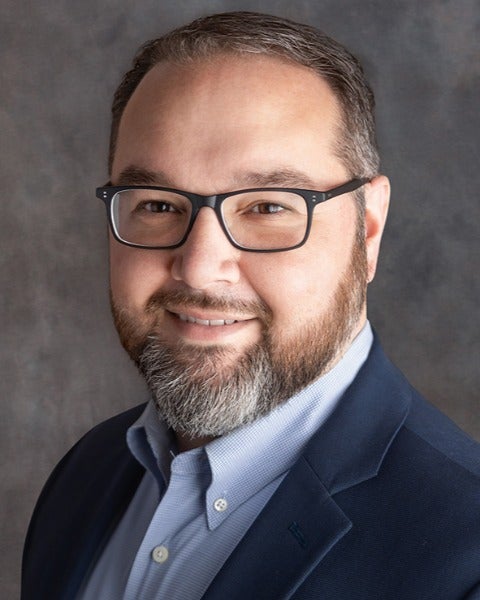Date & Time: Monday, October 14 | Time: 8am-5pm PT
Fees: $395 member/non-member
Please note: this preconference program requires a separate registration and fee and is not accredited for continuing pharmacy education credit.
Course Description
The Residency Program Design and Conduct Preconference program has been designed to review the newly developed and harmonized PGY1 Competency Areas, Goals, and Objectives (CAGOs) that go into effect July 2024 and align with the accreditation standards implemented in July 2023 for the design and conduct of a PGY1 managed care pharmacy residency program. The session will include requirements related to program purpose, competency areas, goals and objectives, program structure, learning experiences, orientation, use of preceptor roles, evaluation, resident development plans, continuous residency program improvement, and residency program director and preceptor qualifications.
Faculty
Jim Carlson, PharmD
ASHP Contract Lead Pharmacy Residency Surveyor

Thomas Pomfret, PharmD, MPH, BCPS
Clinical Consultant Pharmacist Team Lead, Clinical Pharmacy Services, PGY1 Managed Care Pharmacy Residency Program Director at ForHealth Consulting at UMass Chan Medical School in Shrewsbury, Massachusetts, and current member of the ASHP Commission on Credentialing

Marnie Wickizer, PharmD, AE-C, CDCES
Director, Clinical Services, PGY1 Managed Care, Residency Program Director at Navitus in Madison, Wisconsin, and past member of the ASHP Commission on Credentialing

Learning Objectives
At the completion of this program, participants should be able to:
- Identify the purpose and competency areas for a pharmacy residency and related accreditation requirements.
- Describe accreditation requirements for residency program structure and orientation.
- Describe accreditation requirements for learning experiences and their written descriptions, including requirements for resident learning activities.
- In specified scenarios, identify the most appropriate preceptor role to use with a resident.
- Distinguish whether examples of formative and summative feedback to residents meet accreditation requirements.
- In given examples, determine whether portions of resident development plans meet accreditation requirements, and identify ways to improve the plans.
- Describe accreditation requirements for continuous residency program improvement.
- Identify qualifications for residency program directors and preceptors.

